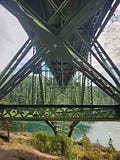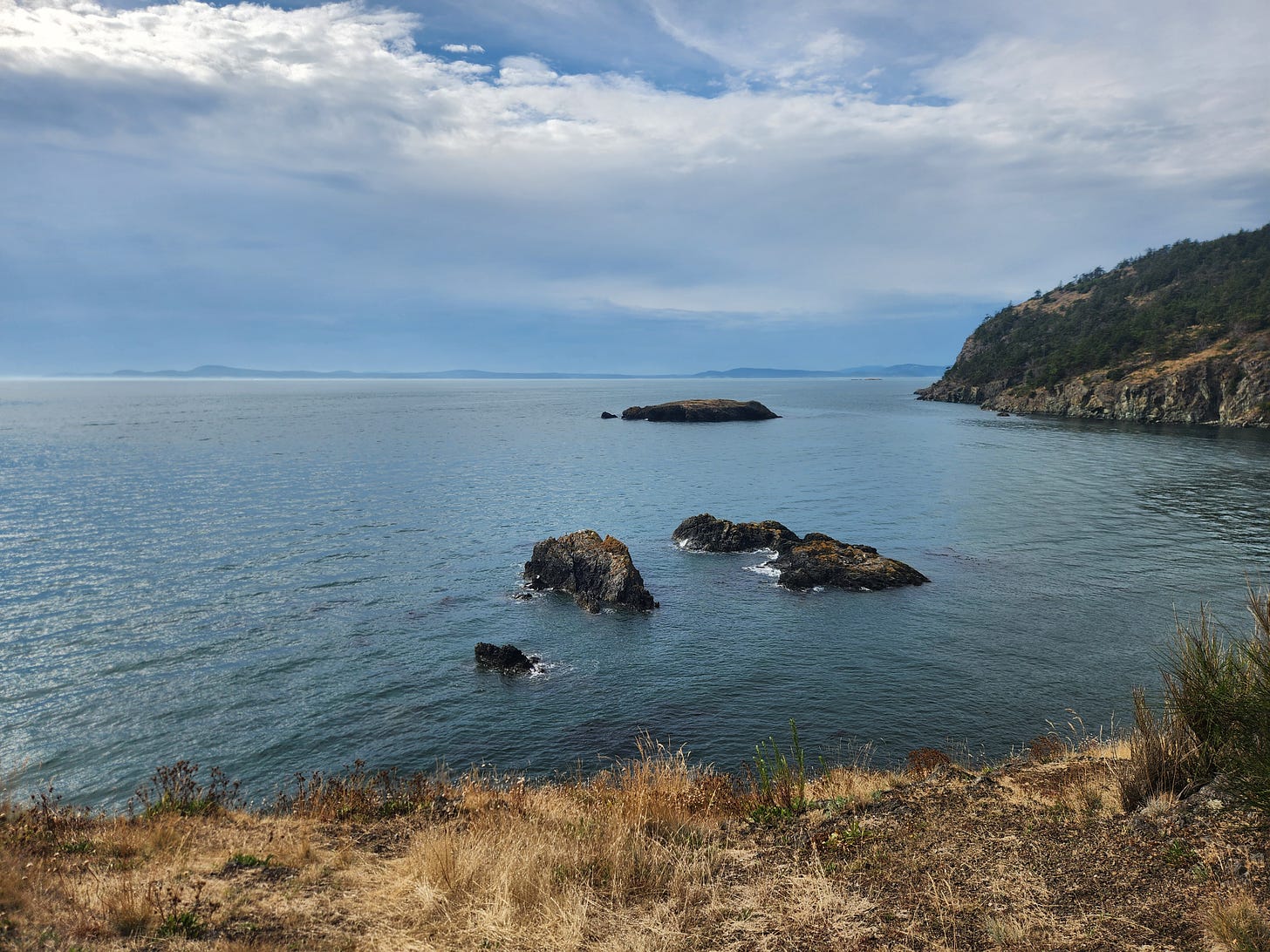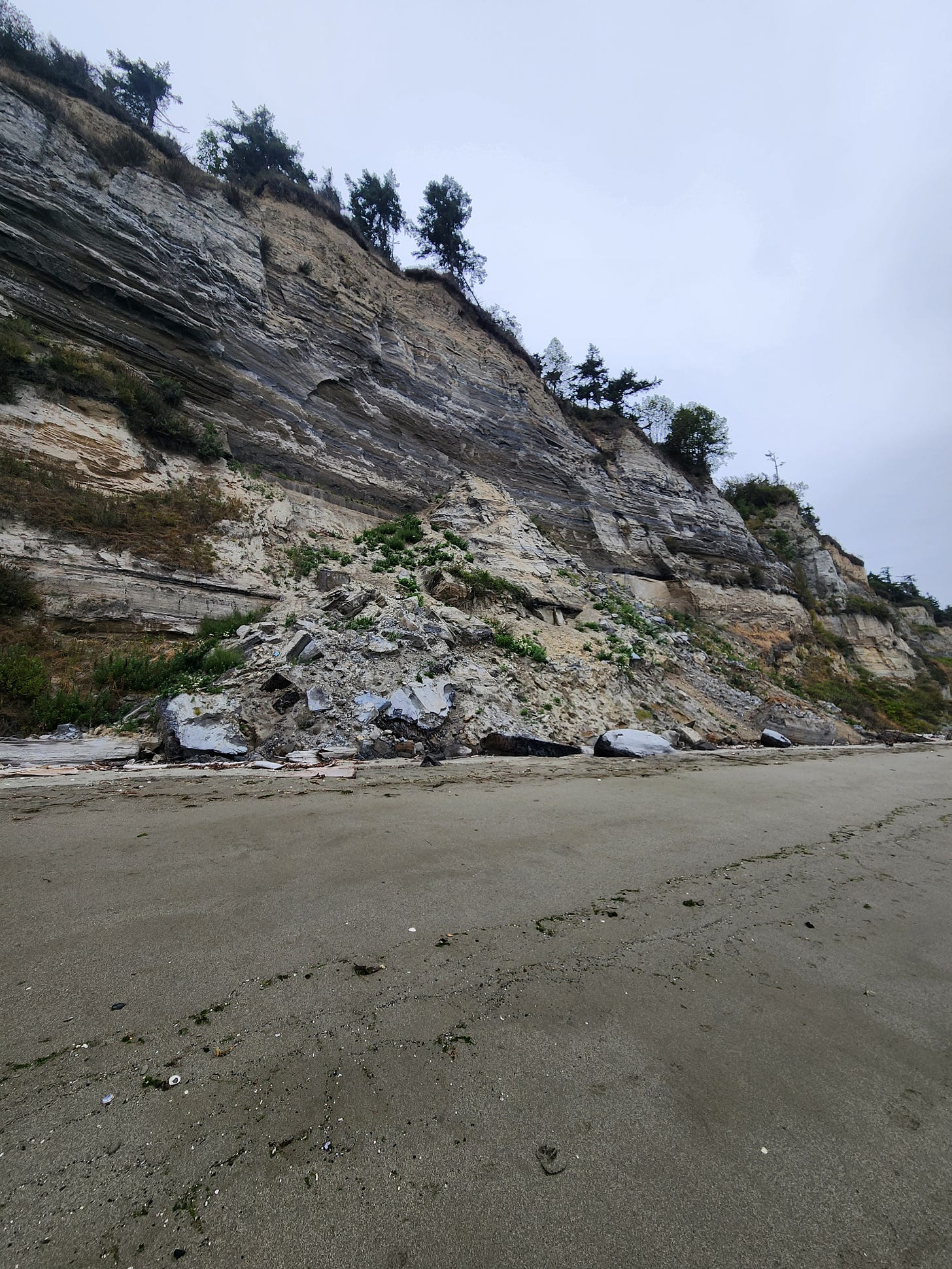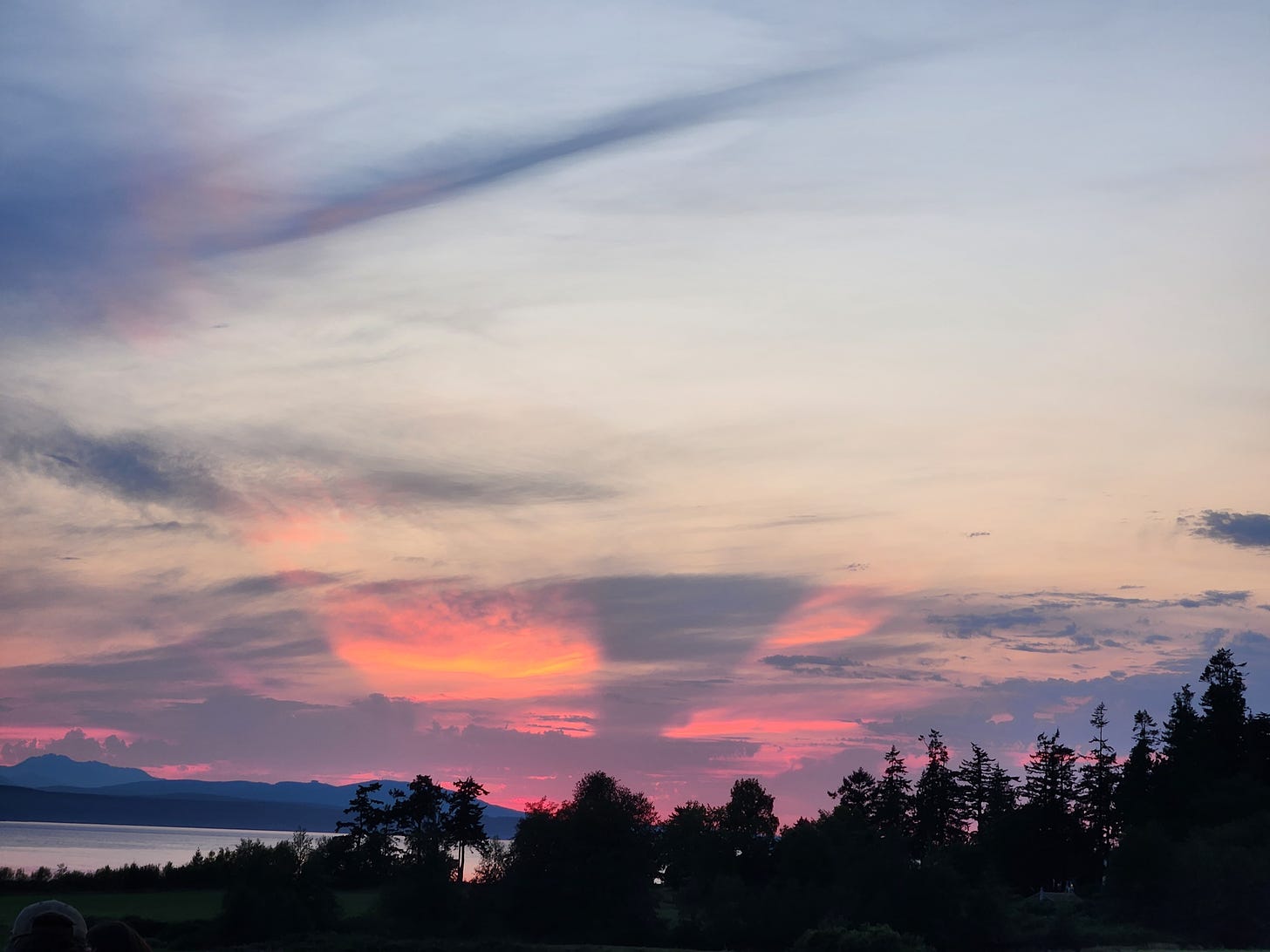Twice in the last few weeks I’ve managed to get to (or near) Whidbey Island. If you aren’t from the Northwest, you may not know what a lovely place this is, a large island north of Seattle filled with quaint towns, farms, and forests, along with a Naval Air Station and lots of second-home development.
When I was a child, I loved going to the island. It entailed either crossing a truly amazing bridge at Deception Pass or taking a ferry ride; either way felt like a treat. And most trips to the island then involved getting to Fort Casey, an old fort with huge cannons you could scramble on and a lighthouse you could climb to the top of. (Now, it involves visiting family, because my spouse grew up there.)
My recent trips, that I’m using for The Field Trip this week, were for two distinct purposes but got me thinking about how things get passed down. Read on!
An Old Friend
When I was about 12, I met my best friend. From then until we moved away as adults, we remained close and spent countless hours together. I cannot imagine having a better friend during those years that can be so hard for so many. Watching other kids travel through the gantlet of teenagerdom, I have repeatedly been thankful to have had him by my side as a faithful friend and good influence. We have not lived near each other for decades, but when I see him, I fall easily back into conversation again as though no time has passed. I am grateful for that.
For the last two years, as his son has been making his way back to college at the end of summer, his son has stopped in and we’ve gone on some local excursions. This time we visited Rosario Head at Deception Pass, a special spot within a state park that juts out into the Salish Sea in a way that makes you feel almost like you are on the water itself.
My friend’s son is an unusually thoughtful young person. (Having been around college students since I was one in the early 1990s, I can compare him to a large sample size, and he’s tops!) We share some strong interests — and not necessarily the same ones his dad and I shared. This includes the outdoors.
As we walked and gazed out over the Salish Sea, we listened to the birds and wind. We talked about history and his career plans. Glancing toward the San Juan Islands, he shared that he’d written a report on the obscure, so-called Pig War when he was young and still living in Alaska. This marks the only time I’ve talked about the Pig War outside a classroom!
Standing atop the rocks jutting into the seawater, I observed him and saw mannerisms that mimicked his dad. I was brought back unexpectedly to being a 15-year-old with a best friend and knowing the joy of that camaraderie. It almost knocked me over, again, this friendship that has lasted since the 1980s. That afternoon as I drove toward Deception Pass once more, I did not expect to be transported back in time in such a personal way. What a welcome surprise to join the enticing scenery. We saw the sun setting, a seal taking a salmon, a bald eagle watching the scene. But nothing matched the time traveling of their mannerisms and the memories they prompted.
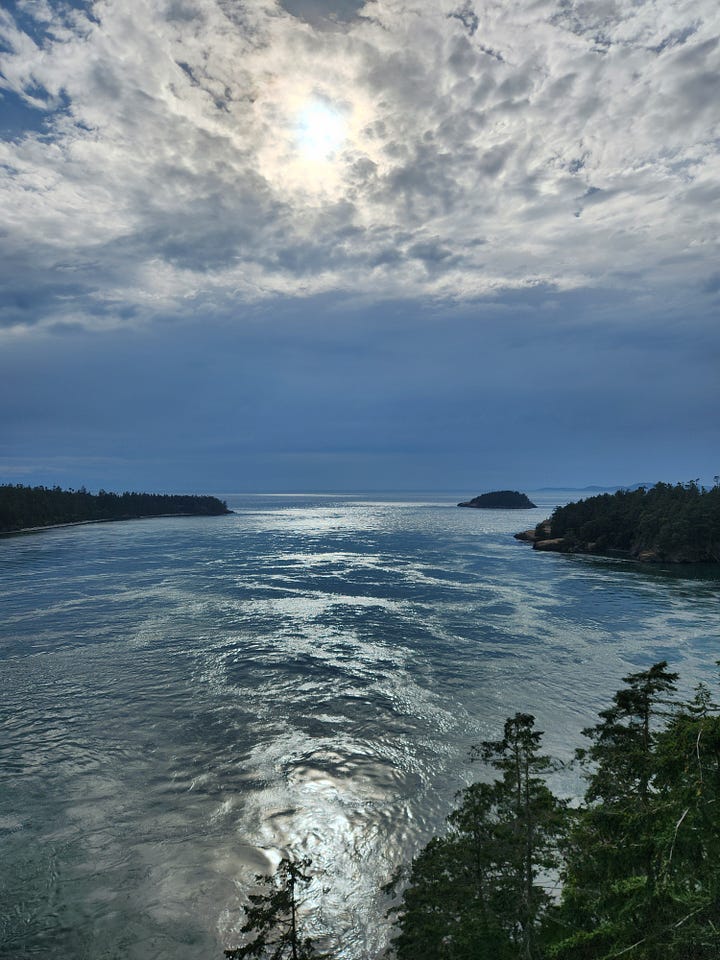
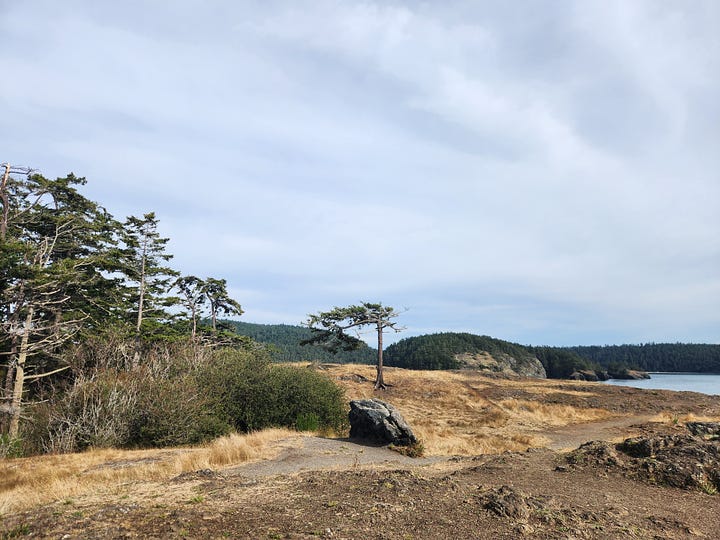
A New Tradition for Me, an Old One for Others
Over Labor Day weekend, I joined my spouse’s family and friends for what they call Camp-o-Rama. This event has occurred more often than not over the last four decades. Over those decades, I’ve been told, its form and location have shifted. The basic shape, though, has been the same: families and friends meet for a fun end-of-summer gathering. This year initiated me in my first Camp-o-Rama, held on some private land on Whidbey Island large enough for dozens and dozens to comfortably camp.
There are routines, collective and individual: climbing the hill to watch the sun set behind the Olympics, campfires and guitars, walks along the beach. The children who originally ran around when this started now have teenagers and adult children. It won’t be long until a fourth generation appears. The layers of stories and memories among the conversations resemble the layers of soil visible on the bluffs.
Camp-o-Rama is not my tradition, but it is a welcoming place. Most of that, of course, is the people who pause their busy lives to make and share meals, sing and clean together, watch kids compete in three-legged races and tug-of-war, topped off with sleeping outdoors before autumn makes things muddy and uncomfortable.
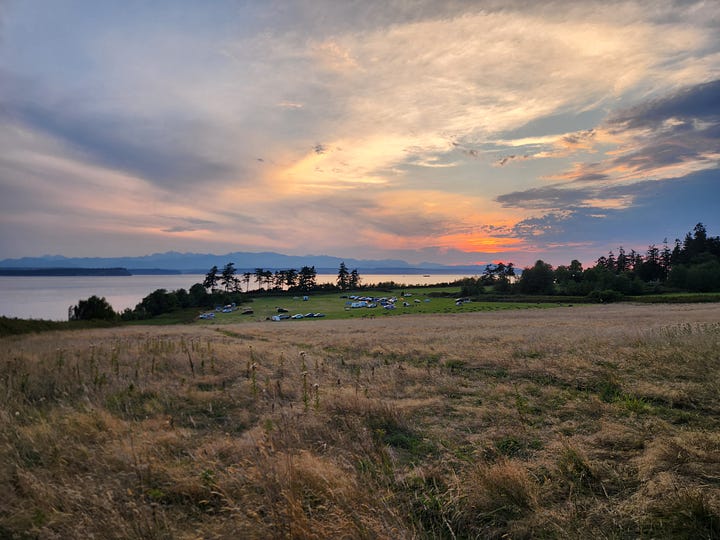
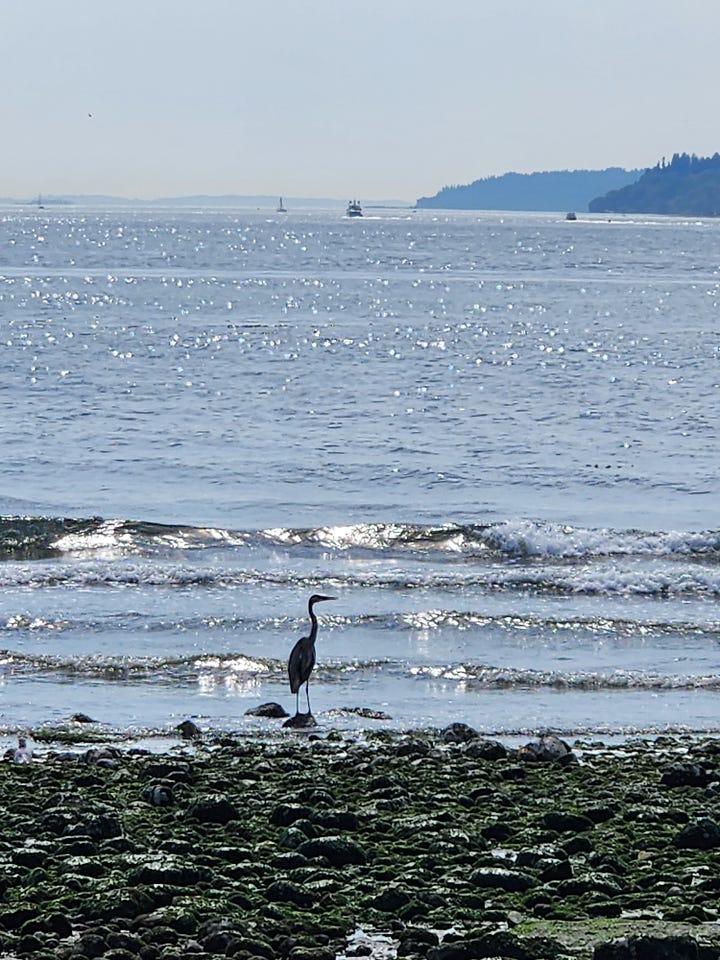
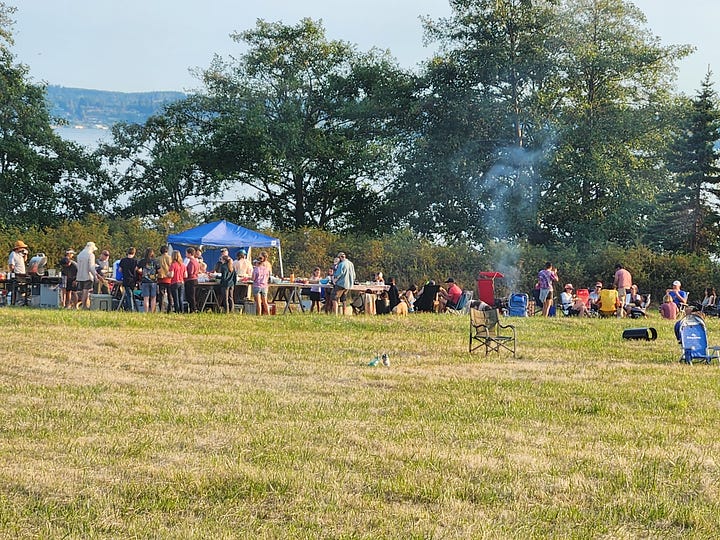
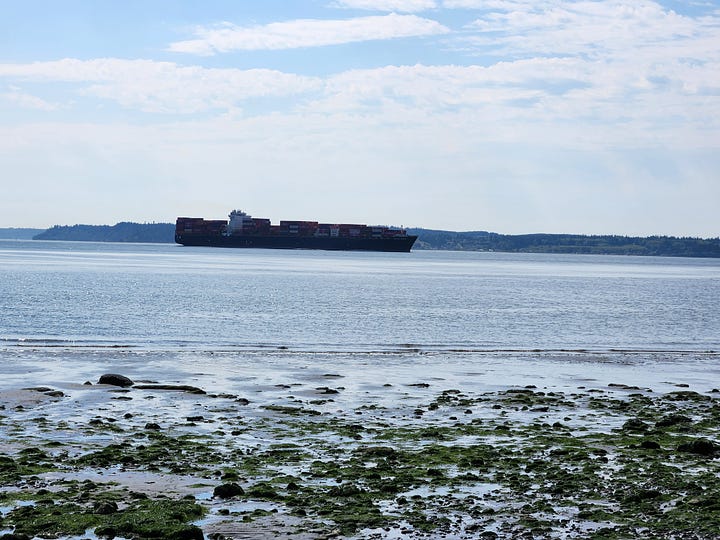
Some of it, though, is the setting. Everyone is connected somehow with the island, which is a special place that produces special friendships and memories. When we rolled in, we could see Mount Rainier to the south, along with the skyline of Seattle. To the west, the Olympic Mountains cut jagged across the horizon. If you walked the beach, you could see to the east the Cascades cresting against the sky. The morning we left, though, fog socked all of this in. Foghorns boomed to announce ships going through the channel — awakening most people earlier than they had planned. In this pocket, surrounded by all this companionship and stunning natural beauty, ease can prevail — something too seldom accommodated in daily life in most places.
Goodbyes in the morning meant summer was over, one more tradition successfully in the books, one more layer of memory added.
Conclusion
My recent trips have reminded me that the world passed to us contains much beauty, natural and otherwise. We owe it to those still to come to keep it beautiful and make it safe and welcoming.
Closing Words
Relevant Reruns
I’ve written here about Deception Pass before. One of my first published personal essays, “Seeds,” is partly about passing things down. You can read it here and paid subscribers can hear me read it here.
New Writing
Still at work. Some recent pieces are finished but not yet published.
As always, you can find my books, and books where some of my work is included, at my Bookshop affiliate page (where, if you order, I get a small benefit).
Taking Bearings Next Week
Next week is The Library, so I’ll try to find something suitable. Stay tuned!

